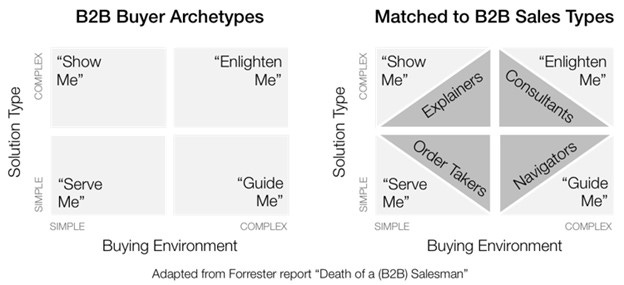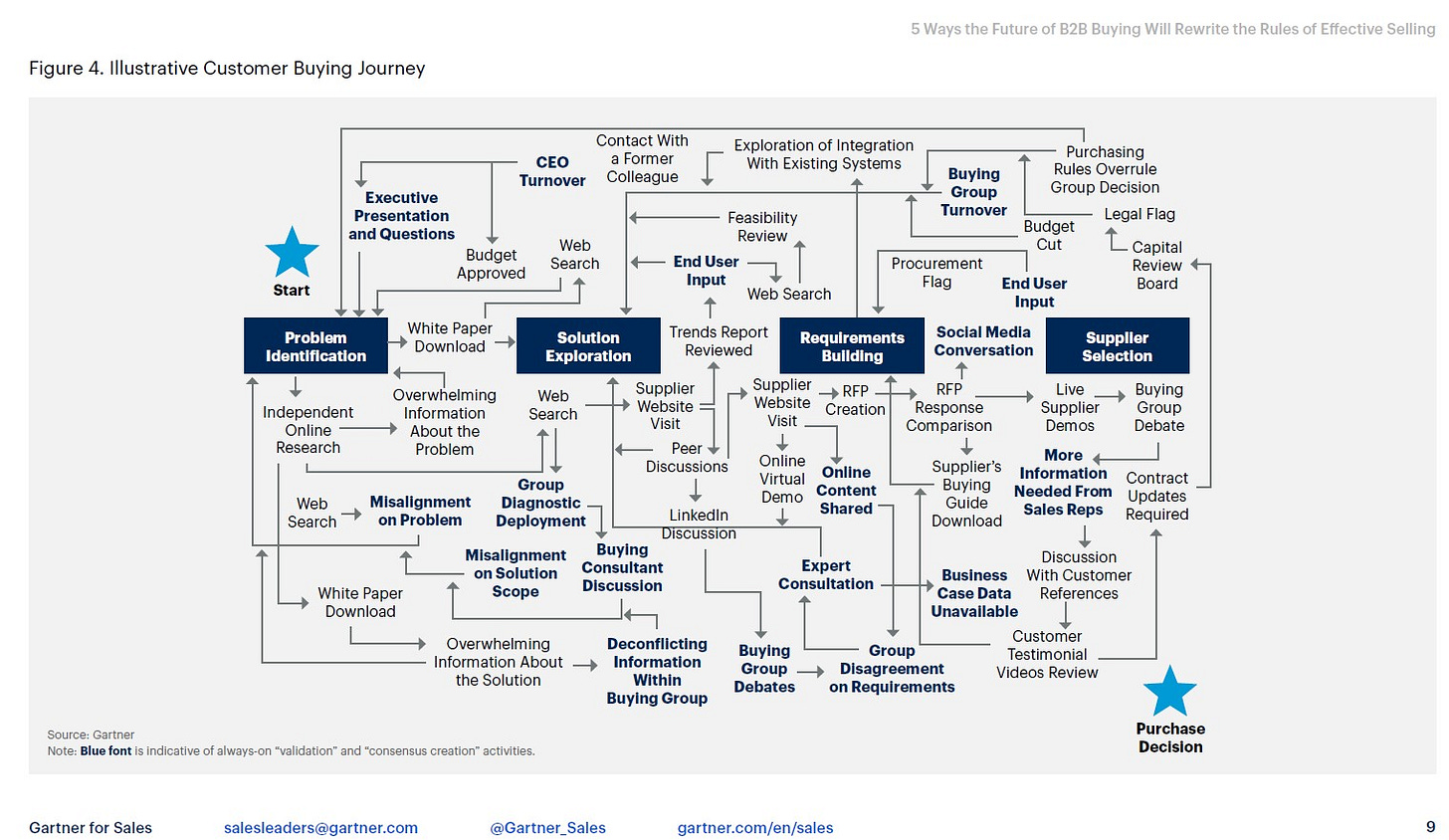We, B2B Salespeople, Are Doomed
Consumerization of B2B: Impact and Implications
We, B2B Salespeople, Are Doomed
At least, this was the prediction by Andy Hoar from Forrester back in 2015. According to him,
Ouch! Not a glamorous perspective.
To back up his claim, and again in his 2017 update, Andy mentioned:
“Nearly 75% of B2B buyers now say that buying from a website is more convenient than buying from a sales representative.”
“Further, 93% say that they prefer buying online rather than from a salesperson when they’ve decided what to buy.”
In 2017, 68% of B2B buyers wanted to do their own product research (vs. 53% in 2015).
One of his main arguments was what he coined the "Consumerization of B2B." In simple terms, the trends seen in the B2C world (how we serve customers) will also impact the B2B industry. After all, B2B buyers are also B2C consumers, and their personal habits as customers (e.g., buying online) influence their professional purchasing behaviors.
As of 2024, it is difficult to determine if these predictions have fully materialized. (If you find material on this topic, please let me know.) With the progress in digital marketing, automation, and the development of AI, external factors are more likely to support this prediction than contradict it.
But there might be a catch.
What do we mean by “B2B Salespeople”? In his article, Andy Hoar distinguishes four different types of buyers, and accordingly, we should identify four types of salespeople.

With these subcategories, it is easier to understand Andy’s point. The most impacted category, according to him, would be the “Order Taker.”
{Here, I would question whether “Order Takers” should be considered salespeople. This comes down to your definition of a (B2B) “Salesperson.”}
From here, I see two ways to continue the discussion:
From an individual point of view: a B2B sales rep wondering about his future.
From an organizational point of view: to be addressed in a different post due to its complexity.
For the Sales Rep:
If you want to stay relevant (keeping your job), choose the difficulties path. Here are two approaches:
a. Assessing Yourself:
If you consider yourself an “Order Taker,” the risk of being displaced is higher. Transitioning to roles like Explainers, Consultants, or Navigators is advisable. If your organization does not offer these roles, you might consider looking elsewhere.
These roles require new skills and mindsets. Successful transitions are more likely if you proactively choose this change. Passive transitions (being asked to change) have a lower success rate because acquiring new knowledge, skills, and competences can be challenging.
b. Evaluating Your Current Role:
If your job falls into one of the three remaining categories, your role is less at risk. Your focus should be on managing and assisting customers through their buying journey. While you may need to adapt and evolve with trends, you already possess the necessary skills and knowledge to stay relevant.
Impact of Technology:
Technology undeniably impacts the way B2B salespeople work. Could it jeopardize your professional existence? Potentially, if you are not adding value. However, if you provide significant value and become part of the solution, the risk diminishes. This is where value selling or consultative selling comes into play, creating the greatest value for the customer, the sales rep's organization, and the sales rep themselves.
Keep investing in yourself and learning.



First,I will share my content with you (response to your request above). Then buying from a website, yes but no if the subscription you have to pay is significant and service comparison with competitors not straightforward. B2B salespeople have fine days ahead of them :)